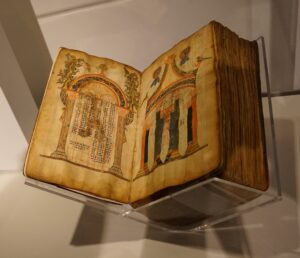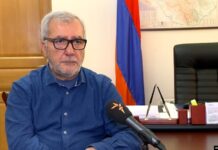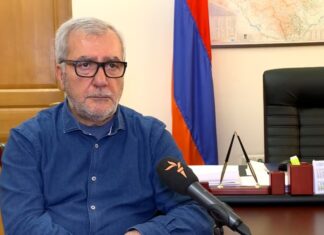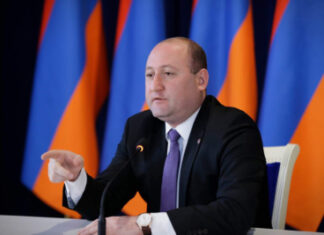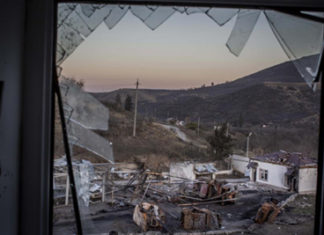YEREVAN — French-Armenian director Patrick Malakian has been a frequent visitor to Armenia during last years. He was born in 1963 in Boulogne-Billancourt; he is the son of renowned filmmaker Henri Verneuil (Ashot Malakian, 1920-2002) and editor and actress Françoise Bonnot (1939-2018). After his studies at the University of Hartford in the US and military service, Patrick Malakian became an assistant of director and directed his first short film in 1991. He directed his single feature film, “Why Is Mum in My Bed?,” released in 1994, as well as episodes in 10 TV series. Malakian has served as producer, writer and actor in several TV series.
My conversation with Patrick took place on November 1 of the last year in Yerevan, after the international conference on cinema issues dedicated to the 100th anniversary of Henri Verneuil, which was held on October 29-31 in Yerevan.
Patrick, what is your opinion, as a filmmaker, on your own films?
My movies are made for television. When you do TV movies, you have certain requirements, that you should understand. Then it means that they are not totally your movies. Each network works differently, each network accepts different things, so you have to get into those slots to direct for television. The good thing is that allowed me to explore different styles. I did some thrillers, some comedies, some science-fiction; once I directed ten episodes for a TV serial that was broadcast in Canada and the good thing is that I was free enough to decide I want to shoot them. And because I was the director with the most episodes, I could put into place some rules. I directed each of those 10 episodes in different ways. There is one episode when the camera never moves, then in another episode the camera moves. I was experimenting to challenge my creativity. And I think that as an artist, specifically when you work for television, you have to challenge your creativity. I always thought that constraints are incredibly good creativity power sources.
Absolutely! We can see it in the example of Soviet cinema, Iranian cinema…
Every cinema, because there is always a moment the director or screenwriter will face the producer and no matter what, no matter how much rich the producer is, they will say: no, it is too expensive. This sentence challenges your creativity as you start to think: ok, what I have to do, I will take this out, but it is important, I still will do it, yet with less money — it is all about that.
